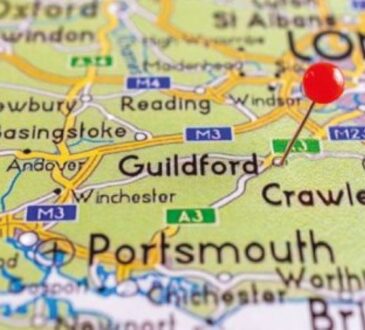
If you do decide to sell, how you would do so depends on where your shares are held. If you have a wealth manager, you can speak to them and instruct them to sell. Alternatively, if you’ve got a broker and manage your own portfolio, you’ll be able to go online and do it yourself.
You might be part of a company share scheme, earning shares as you go. Selling could depend on the rules of your individual scheme – check with your employer.
Use our calculator to see how much capital gains you could pay on the sale of shares and other valuable assets.
When would any increase to capital gains tax take effect?
Given the Government has so far refused to outline any proposed changes to capital gains tax, it’s difficult to predict when they would kick in. In a lot of cases, tax changes don’t come into force until the tax year following the announcement – but it’s not always the case.
Mr Dixon said: “The consensus seems to be that any planned increase will not take place until the new tax year on April 6 2025 – but I recall that George Osborne increased capital gains tax rates immediately after an emergency Budget in June 2010 for higher-rate taxpayers. So we should expect the unexpected.”
Mr Etherington added that a significant tax increase was more likely to take effect in April, which could lead to a surge in receipts as people rush to make sales before the change.
However, he said a small increase could kick in overnight: “If there’s a capital gains tax rate rise then the Chancellor would probably benefit for forecasting that from April 6, because people will inevitably try to get deals done before the end of the tax year, so you could end up with a significant boost to capital gains tax receipts in the short term – although that may drop off in the subsequent year.
“With a modest increase [to the rate], you may not see as big an impact on taxpayers changing their behaviour. The logic would be, why not have the change from day one? A rate change in theory could apply from midnight overnight, so on Halloween. It could be a horror show for capital gains tax rates.”
Mr Hollands said: “Alterations to the main rates of tax usually commence from the start of the next tax year. However, there is historical precedent for changing the rate of capital gains tax mid-year, so such a move cannot be ruled out.
“While the Chancellor might do this, arguably she would have an interest in allowing the current tax rate to remain in place until the end of the tax year as this would see a continued stampede to dispose of assets, leading to a bumper year for capital gains tax receipts in 2024 to 2025.”
Can you protect your assets from capital gains tax without selling up?
Capital gains tax kicks in when an asset is sold or gifted, so one option to avoid being hit by a rise is not to sell up at all.
Mr Etherington said: “For some, it’s important not to make knee-jerk decisions. There is a strong historical tax record of capital gains tax rates going up and down. We could see changes again within the same parliament.
“The key is, don’t let fear override a sensible investment decision.”
Mr Hollands said: “While there is significant concern about potential tax hikes, the reality is that the capital gains tax regime has already become much less investor-friendly in recent years. Notably, the last government brutally cut the annual exemption from £12,300 as recently as 2022 to 2023 to £3,000 this tax year.
“Migrating shares and other investments held in a taxable environment into Isas and pensions is pretty much always a wise thing to do. While this activity normally spikes at the end of the tax year, the upcoming Budget has focused clients’ minds and brought this forward.
“Don’t take irreversible decisions you may later regret, purely based on speculation. But do consider sensible planning decisions that make sense anyway, even if no changes occur in the Budget.”




